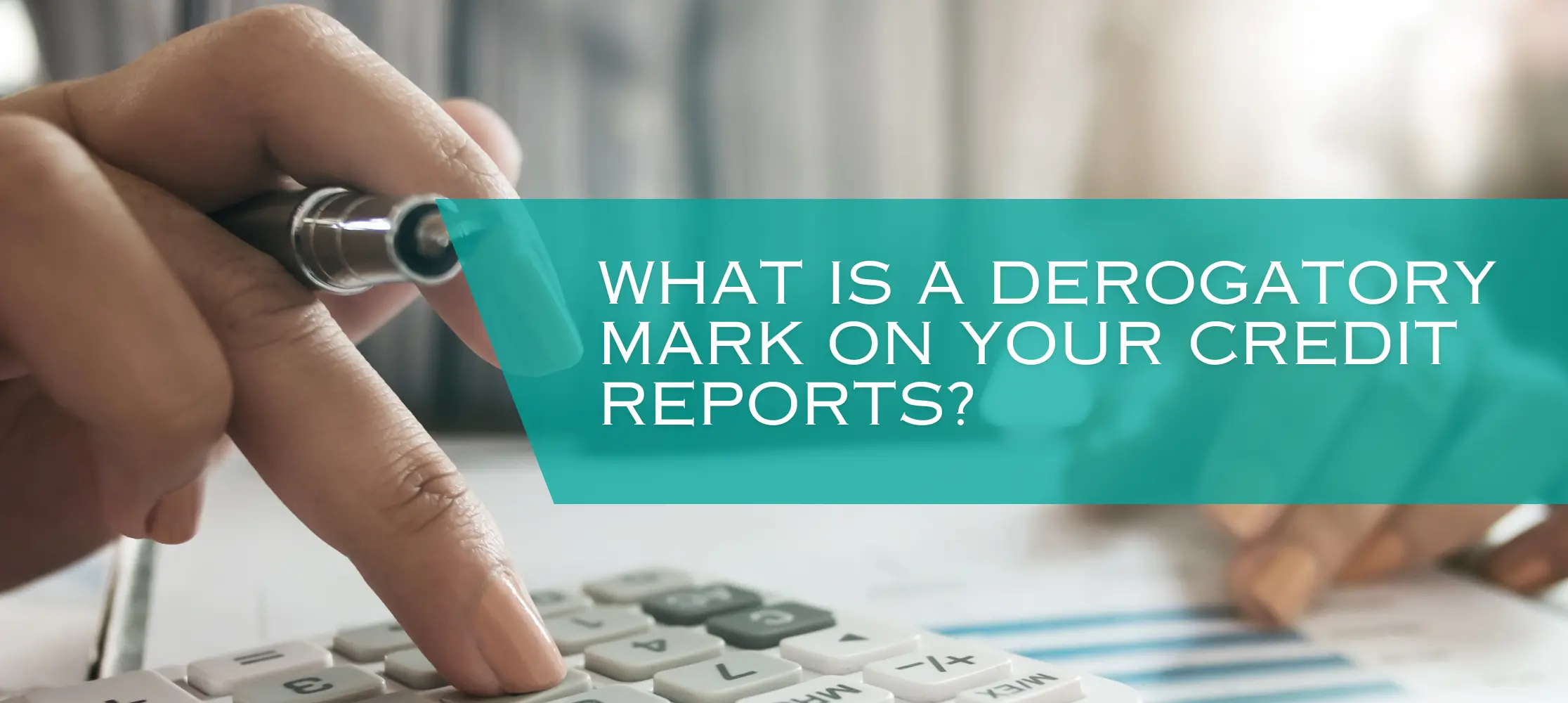What Is A Derogatory Mark On Your Credit Reports?

Have you ever heard or noticed the term “derogatory mark” written on your credit report? This phrase might sound troubling if you are not aware of what it means and how it might affect your credit scores. If you get such a mark on your report, then it means that there must be an item on your account that is either at credit risk or past due. A credit risk is the risk that a lender might lose the money they have lent an individual because of the missed payments. Thus, such a remark starts to show on the report due to it being reported from your lender to the agency, not the service giving your score.
These remarks are different from the alerts that you might get from your issuer. They can be regarding a fraud alert or even a low credit balance. These derogatory credit remarks can negatively impact your credit scores. In order to understand this, let us get to the bottom of this topic, shall we? Starting from…
What Is A Derogatory Mark?
Your lenders might have different meanings of what they think of as “Derogatory.” However, an account that has been written off as a “derogatory account” on a report mostly indicates a severe delinquency of a month or more past due. There are certain accounts that might be considered derogatory, such as:
- Accounts that are charged off.
- Collection accounts.
- Accounts with a status of voluntary surrender or repossession.
- Government claims or foreclosure.
- Derogatory public record or collection filed.
- Accounts showing discharged in bankruptcy might also be considered derogatory.
Let us look at some of these accounts that occur commonly.
Commonly Occurring Derogatory Marks On Credit
Missed Payments
If you are late by a minimum of 30 days, you must start expecting a derogatory mark on your report. Typically, missed payments are to stay for 7½ years from the day they were reported late. The later the payment goes, the greater the damage it can do to my credit score.
· What To Do
As soon as you can manage, pay your bills. If you have rarely or never been late before, you might be able to get the creditor to drop the late fee. You can contact the service, explain your mistake, and request them to remove the fee. Moreover, you can also write a goodwill letter. If you cannot pay the bill for any reason, contact your creditor and inform them regarding your financial situation to see if you can work out any plan. The negative influence on your credit score ranges will diminish with time. Try to stay regular with your payments so that positive information in your reports can weaken the impacts of any derogatory mark.
Account Charge-Off
Now that you know what is a derogatory account, there is one more thing that you must know. That is, if you cannot or do not pay your debt as you agreed upon, then your lender might eventually charge off your account. This charge-off will show on your reports for no less than seven years.
· What To Do
Do your best to negotiate a settlement or pay off the debt. Doing so will not cause the charge-off to disappear from your reports. However, it will certainly reduce the risks of you being sued over the debt that you owe.
Repossession
If you do not or cannot pay for any item, i.e., a car, as agreed, then the lender can come, often without warning, and get the item. This will also stay on your reports for seven years after being reported late.
· What To Do
Try to keep all your bills up-to-date. Positive information, i.e., on-time payments, can dull the damage to your credit with the passage of time. In this way, you can improve your credit score with much less hassle.
Collections
If your creditor is not seeing payments, you might sell the debt or even only send it to a debt collector. Having an account in “Collections” is a major derogatory mark that can also stay on your reports for seven years. A debt collector might get rid of such an account from you if you pay to delete the agreement. However, this occurs rarely. You must know that this move is highly frowned upon by reputed credit score monitoring services.
· What To Do
Make a plan to pay off the collection as soon as you verify that the agency actually owns the debt. This will not get the mark off your credit reports, but it will definitely remove any risk of you getting sued. Medical bills in collections work a little differently. Similar to other negative marks, the damage will fade with time if you do not add other such marks on top of it.
Bankruptcy
The duration of bankruptcy and how long it will stay on your report varies with the type of bankruptcy you file for. The common types of bankruptcy are Chapter 13 and Chapter 7. The former one stays on your reports for seven years. Meanwhile, the latter sticks around for ten years.
· What To Do
You can start re-establishing credit. A secured credit-builder loan or credit card can help individuals build their credit if they cannot qualify for an unsecured credit. Moreover, you must keep in mind that credit scores can rebound from bankruptcy way sooner than you actually think.
How To Rebuild Your Score After A Derogatory Mark
Now that you know all about “what are derogatory marks on credit” you should also know that you can rebuild your bad credit score. That’s right! Making even the slightest progress to improve your scores after such a mark can give you great financial options. Start by restoring your credit with some of the expert tips given below.
- Try to be punctual with your payments. On-time payments can influence your scores a lot. So, do your best to pay at least the minimum by the due date.
- No matter what you do, try to keep your credit card balances below 30 percent. Credit utilization is the second biggest factor that impacts your score.
- Consider using tools like Credit Breeze, share-backed loans, or credit builder.
- Become an authorized user on the credit card of someone having good credit.
- Co-sign credit with someone.
The Takeaway
That sums up all about “what is derogatory credit.” If you happen to have such a mark on your report, then you can take some proactive steps to get rid of it. For those due to errors, feel free to dispute them with reputed credit score services as your first priority. Even if you are unable to dispute the item, there are still a bunch of ways that you can work towards rebuilding your credit.
One of the most effective methods to do so is to be regular with your payments. By doing so, you will be able to show your lenders that you are creditworthy. Another option is to restrict yourself on how much credit you can borrow. Make sure to keep your credit card balance below your credit limit. Lastly, you can opt for a credit card to help rebuild your credit by making on-time payments. Prior to signing up for one, feel free to compare different credit cards to come up with an option that suits you the best.



